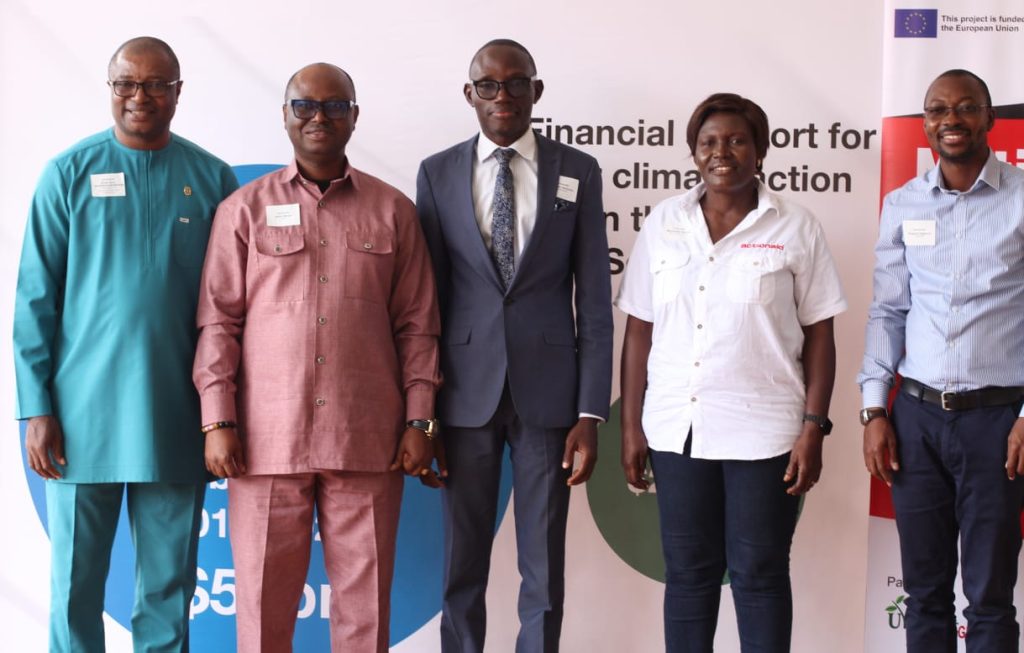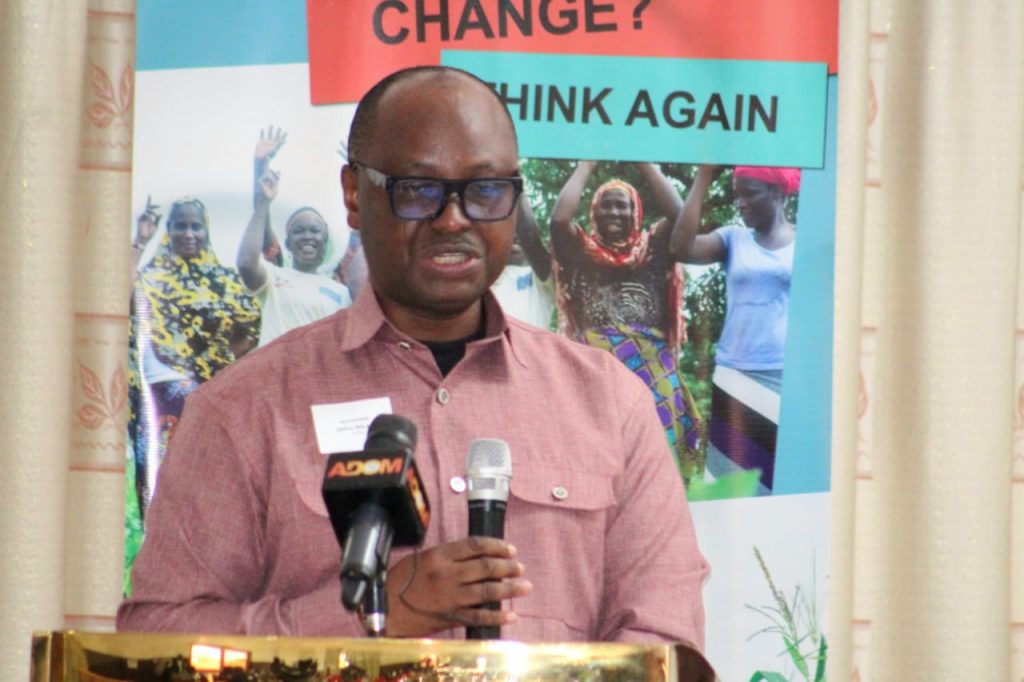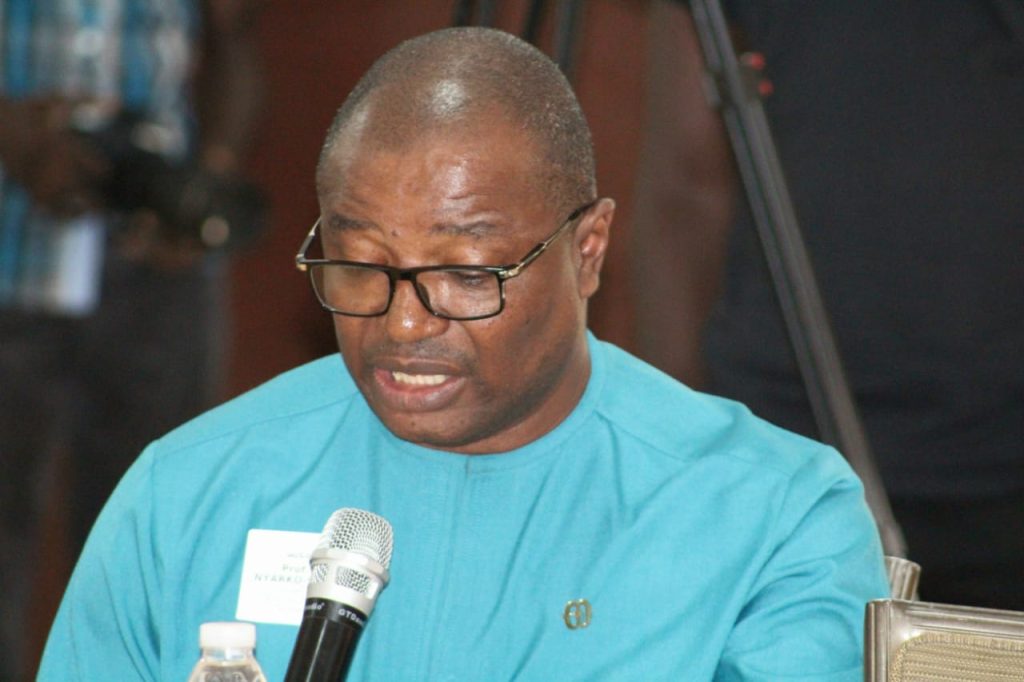By James Amoh Junior
Accra, Oct. 18, GNA – ActionAid Ghana (AAG), a Non-Governmental Organisation, and its partners have called on banks to immediately end lending and underwriting for corporations involved in fossil fuel expansion.
The NGO further urged banks to stop project and corporate financing of deforestation and other harmful industrial agriculture activities and develop robust red lines to guide exit strategies.
The world’s biggest banks are providing trillions of dollars in financing to fossil fuel and industrial agriculture corporations – the main contributors to climate change – while governments use public funds to support their expansion.
Fossil fuels are by far the largest contributor to climate change, accounting for over 75 per cent of global greenhouse gas emissions.
Therefore, ActionAid Ghana, at a national conference on climate change to launch the Climate Change Campaign in Ghana dubbed, “Fund Our Future: Promoting Investment in Climate Change Adaptation for Resilient Communities,” encouraged banks to develop plans to fully phase out all fossil fuel financing, since it was incompatible with a 1.5°C climate goal.
“This should include an immediate end to coal financing, and oil and gas expansion, alongside a rapid exit strategy from all oil and gas.” ActionAid Ghana said.

An ActionAid International research report shows that much of this financing is being channelled by international banks to fund fossil fuel and industrial agriculture activities in the Global South -the same regions that are experiencing the most severe impacts of the climate crisis.
The emissions unleashed by these activities are heating up the planet and causing floods, droughts, cyclones and rising sea levels that are pushing marginalised communities into deepening poverty, hunger and danger.
The research revealed that bank financing provided to the fossil fuel industry in the Global South reached an estimated US$3.2 trillion in seven years since the Paris Agreement on Climate Change was adopted.
Also, bank financing provided to the largest industrial agriculture companies, operating in the Global South amounted to US$370 billion over the same period.
Consequently, Mr John Nkaw, Country Director, ActionAid Ghana, giving an overview of the new research, said what was more disturbing was that since the Paris Agreement, banks had provided 20 times more financing to fossil fuels and agriculture activities in the Global South to the tune of $513 billion than Global North governments had provided as climate finance to countries on the front lines of the climate crisis.

These data and figures, he said, were worrying and largely extended the need for civil society organisations, academic institutions, the media, and all individuals to join in the demand for climate justice.
Among others, the Country Director recommended that red lines on industrial agribusiness financing must be developed, considering climate impacts, risks of deforestation, chemical and health impacts, human rights and labour abuses, biodiversity erosion, and corporate concentration.
He called for increased investment or financing for adaptation methodologies and better government regulations while setting out alternatives to harmful climate practices.
Mr Nkaw said the Government must begin phasing out financing and subsidies for fossil fuels, fossil fertilisers and harmful industrialised agriculture activities undertaken through progressive and carefully sequenced processes that avoided harming lower and middle-income households, while ensuring access to better alternatives.
Professor Eric Nyarko-Samspson, Vice Chancellor, University of Environment and Sustainable Development (UESD), said the impact of climate change continued to be the greatest threat to human survival.

Citing the 2022 report of the Intergovernmental Panel on Climate Change (IPCC) which warned that the world was set to reach the 1.5ºC level within the next two decades, he said it was only the most drastic cuts in carbon emissions from now that would help prevent an environmental disaster.
While much of the discussion of emission reductions focuses on carbon dioxide (CO2) emissions, the IPCC report further states that methane has a global warming impact 84 times higher over a 20-year period.
It recommends that more focus must be placed on methane emissions, which would help reverse climate change and improve air quality around the world.
Prof Nyarko-Samspson, therefore, noted that drastic cuts in emissions were needed to stop climate change, and that if nothing was done, the world was close to reaching tipping points on climate change.
The Vice Chancellor said to contribute to the aspirations of Ghana’s climate adaptation efforts, key institutions and development actors, including civil society such as AAG should work closely with communities to build their resilience to climate change.
GNA